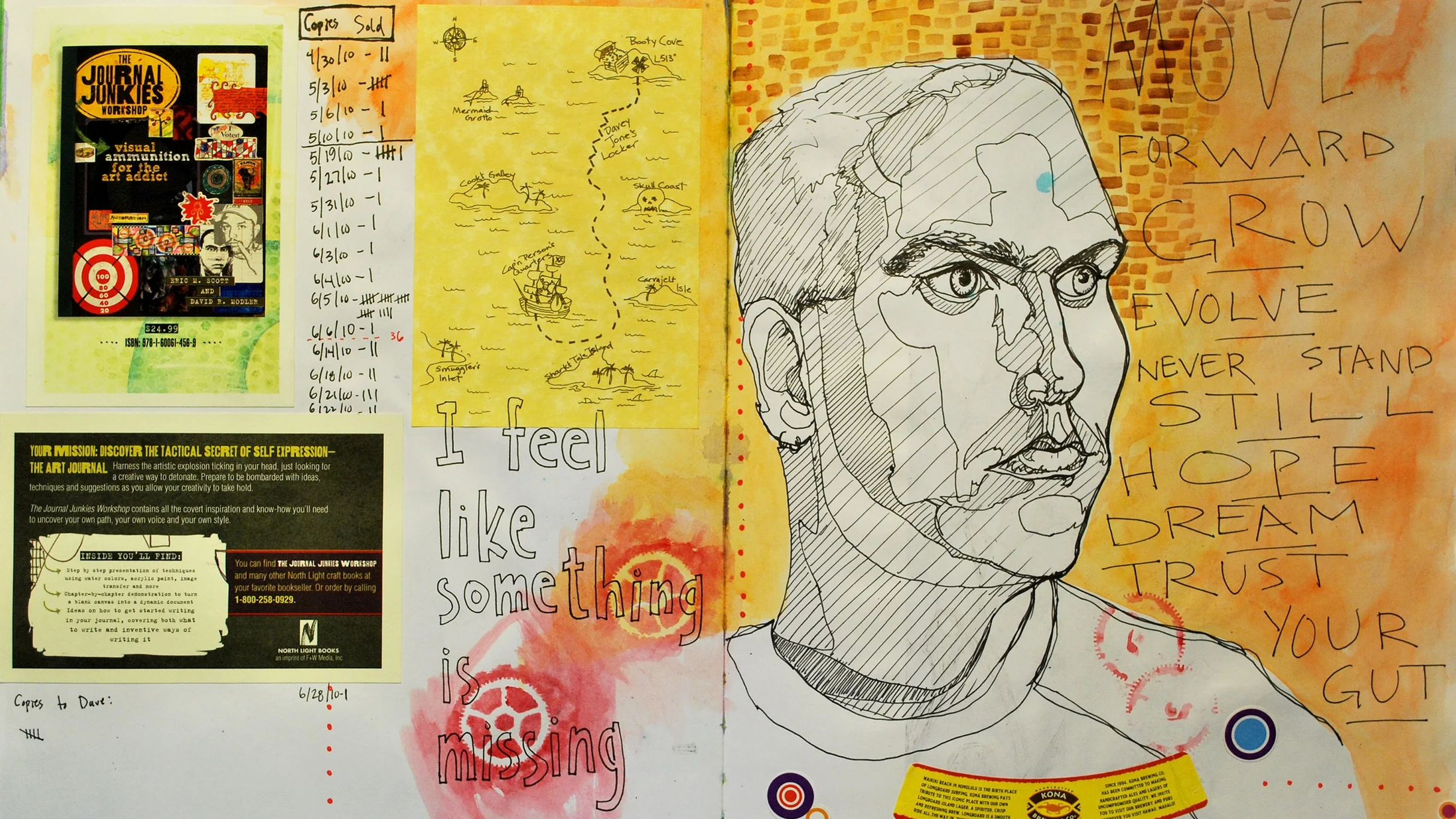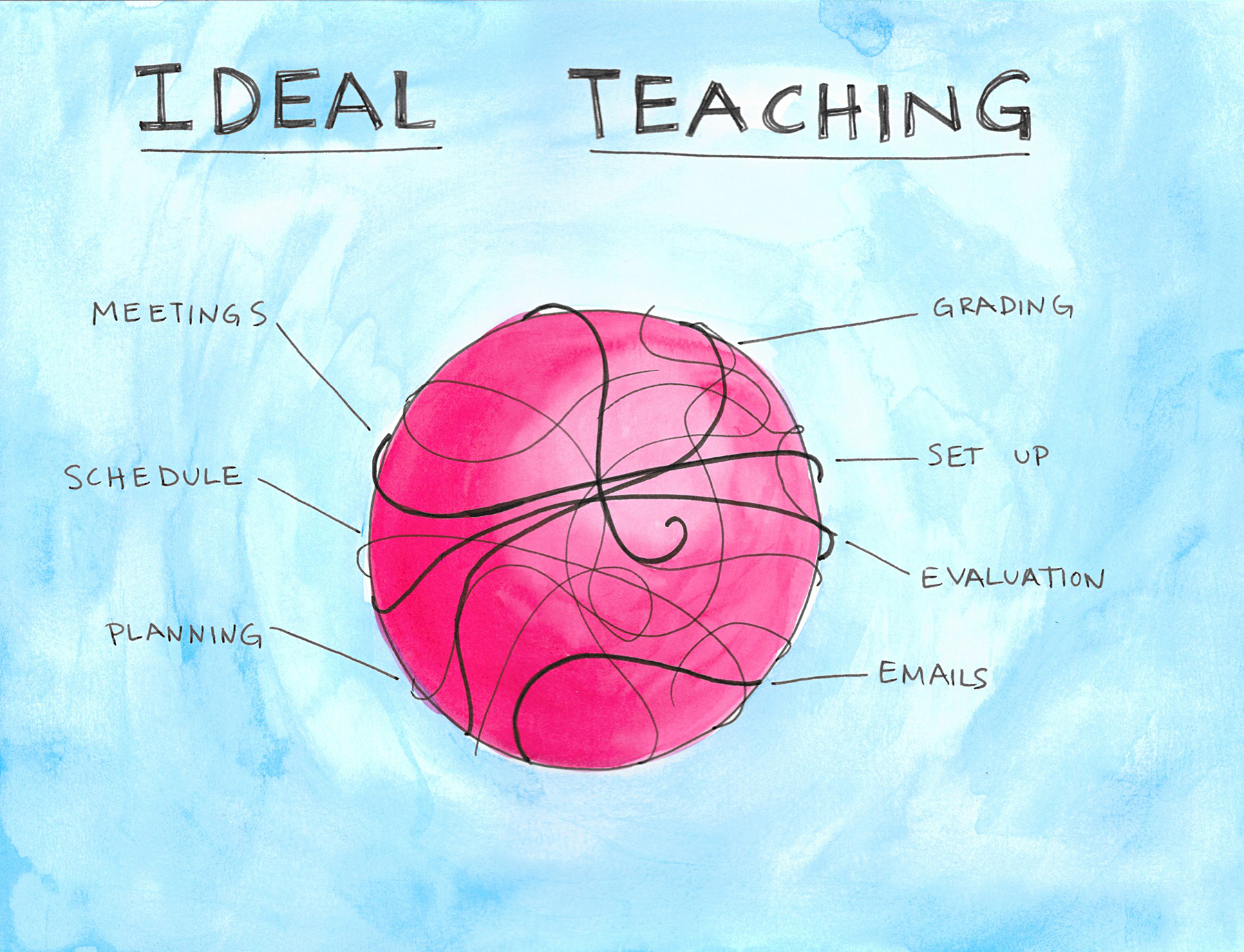Let me share a few specifics.
Each year new district-wide mandates and requirements and new school-based initiatives and expectations were announced, and each required hours and hours of professional development to learn about these new ideas and how to implement them, and planning to figure out the best way to implement them. The ideas had to be implemented, and of course, data had to be collected to support these multiple initiatives. To show that we had implemented them, we had to fill out and file reports that documented the progress and completion of the new initiatives. Each of these things added many more hairs to the massive hairball.
When I wasn’t dealing with these district-wide and school-based mandates, I had other issues to deal with, like the hundred emails that came daily. Most of them could be ignored, but a handful of the emails needed to be answered thoughtfully and diligently. Simple, quick replies wouldn’t suffice, and there was the expectation that a reply would be sent within 24 hours. I had to deal with rising discipline problems because students were stressed out from the regime of standardized tests and assessments they had to endure. Many students just couldn’t hold it together all the time, so there were referrals and reports and conversations with parents, teachers, counselors, and the principal about it all. Each of these added more and more layers to the hairball.
There were the constant disruptions in the schedule with assemblies, field trips, testing, parties, and special events. It was impossible to keep all the classes working at the same pace because of all the things that interrupted the flow of instruction and the sequences of learning. Of course, there were meetings. They might be a necessity of schools, but there were faculty meetings, and team meetings, and committee meetings that never really seemed to accomplish anything. I guess they did satisfy part of the School Improvement Plan. I can’t forget about duties, where teachers were taken out of their classrooms to cover the hallway, or to stand in a noisy cafeteria, or to stand outside in rain, sleet, snow, and heat for bus or car duty. All of these things just added more hairs to the giant hairball.
Grading was a whole other situation. It was never a simply task, but when grade books moved to the Internet so that parents and students could have access to their grades 24/7, a whole new layer of hairs were added to the red rubber ball of teaching. A simple task like entering an assignment to be graded (not the actual grading, mind you) could take an hour. That’s just for a single assignment. So, more hairs.
I list these things not to complain, but to illustrate some of the things that teachers have to deal with that have little to do with actual teaching. I know that I haven’t included everything, and there are many other things that I could add. I’m quite certain that other teachers could add things that I can’t even think of right now. I just want to make it clear that teachers have to untangled a whole lot just to get to the teaching, and it’s not like once all of this tangled mass of bureaucratic stuff is cleared, you're done with it for the year. No, a teacher has to deal with this on a daily basis. You have to go in and untangle the giant hairball each and everyday so that you can get to what’s underneath — that red rubber ball. After all, that’s why there’s school in the first place — to connect with students and teach them. The most important part of teaching is buried, and a teacher has to work hard to clear away the extraneous stuff.
It’s exhausting to struggle with that tangled mess everyday, and the only way to deal with it — to get it all untangled is to stay late, come in early, or take work home with you. There’s just not enough time in the school day to get it all done because school districts add more and more for teachers to do but never add more time, and there becomes an expectation that you will dedicate your own time to get it all done because, after all, it’s for the kids! Though the teacher’s contract gives specific times that the teacher is suppose to be at work, all the teachers I know, work well beyond the contract. The great teachers do that and more. They sacrifice time with family and friends in order to get it all done. They work hard going in on weekends and taking work home, but at the same time, there is a devaluing of the profession. Administrators and principals see that teachers will continually give of their own time, and so it becomes another expectation. But all of those extra hours of staying late and going in early and on weekends deflate the profession and the salaries of the teachers. And that’s what I couldn’t take anymore — the devaluing of my profession by the school board and the administrators by heaping on more and more every year, with the expectation that it will all just get done and, oh, there will still be outstanding teaching and learning going on in the classroom.
In the end I didn’t have the energy or the stamina to go in day after day and deal with so many things that had nothing to do with the core of teaching. I have always loved sharing my art and my passion for art. Teaching always gave me a way to do just that, but after fighting to untangle the mass of hairs day in and day out for years and years, I had no energy left for my students, for my art, for my wife, for my friends, or for myself. I was burned out, and I couldn’t take it anymore. I’d come home exhausted and worn out, and all I wanted to do was to sleep or veg out in front of the tv.
I used to love teaching, and there was nothing like seeing the look on a student’s face when they struggled and struggled with an idea or concept and then finally got it. But teaching had changed so much in the twenty years that I taught. It seems like teaching now isn’t about the connection between student and teacher, though administrators try to tell you that it is. Teaching seems to be about dealing with a tangled mess and checking off boxes to say that you’ve done it, and that’s why I don’t love teaching anymore. Teaching changed, and I just don’t love it. I’m afraid that it’s just going to get worse, and that’s very unfortunate and very disheartening.
Teaching is a giant hairball that keeps growing and growing, and I just couldn’t take untangling that mess anymore. That is why I left.





























